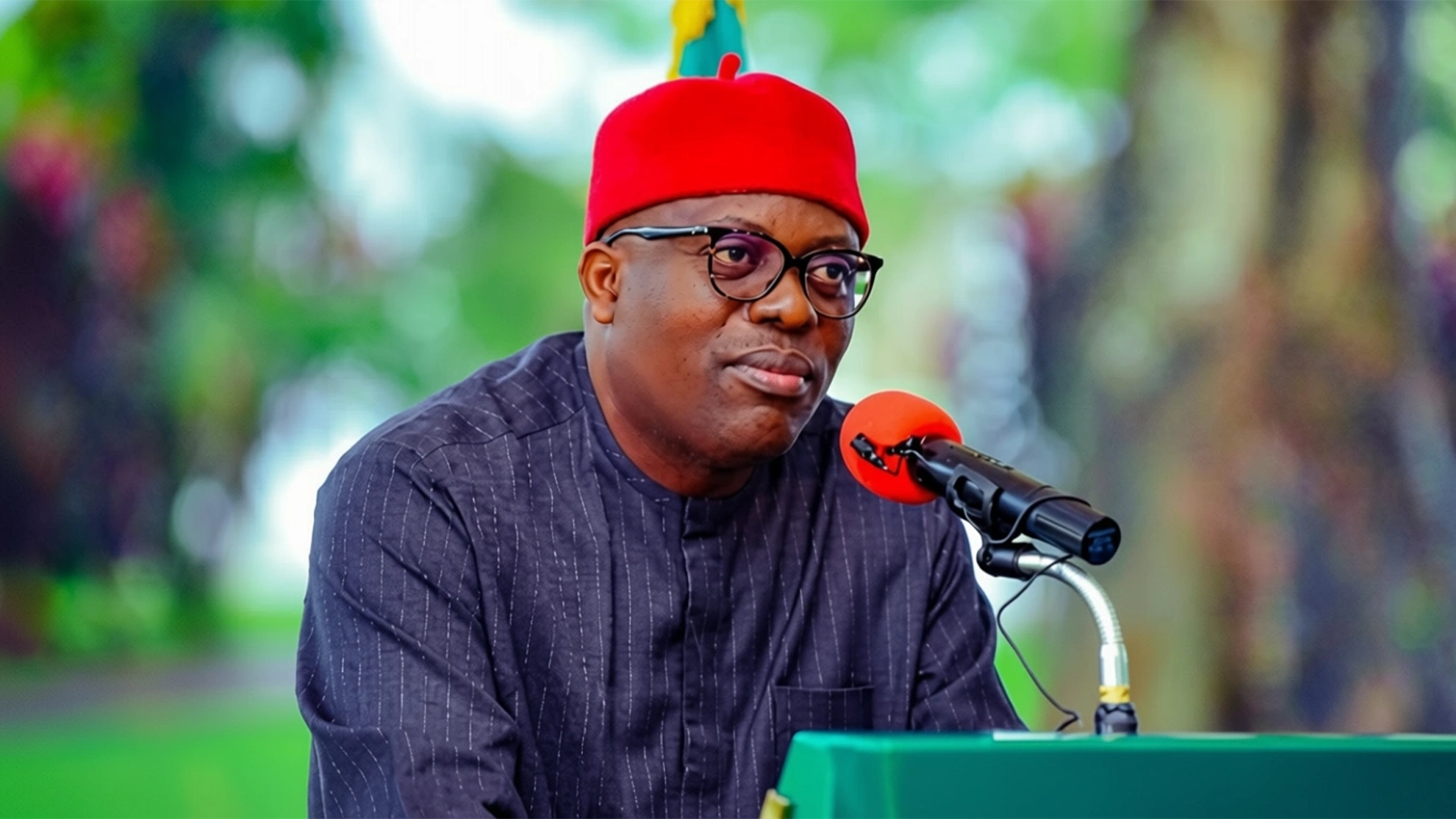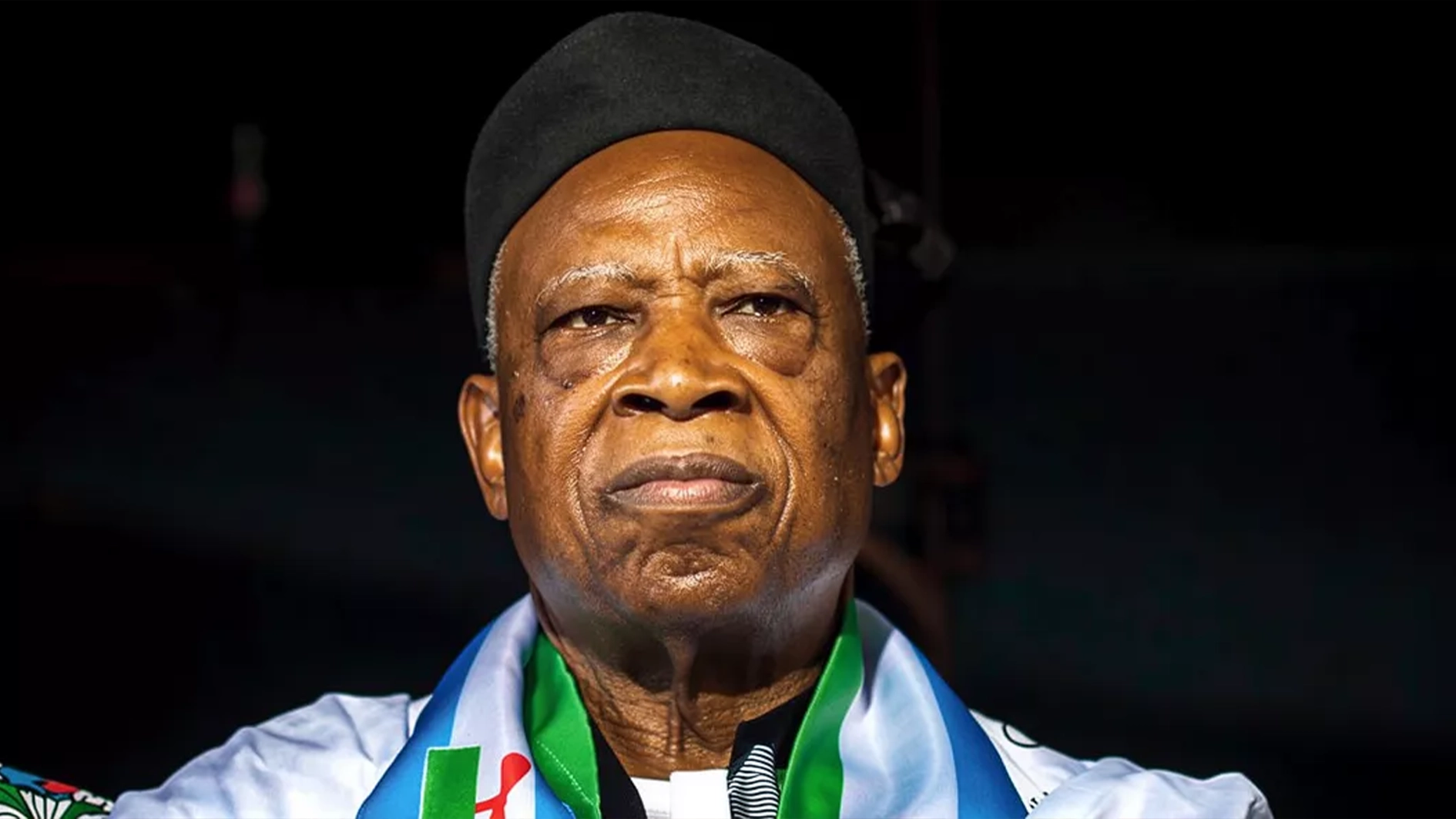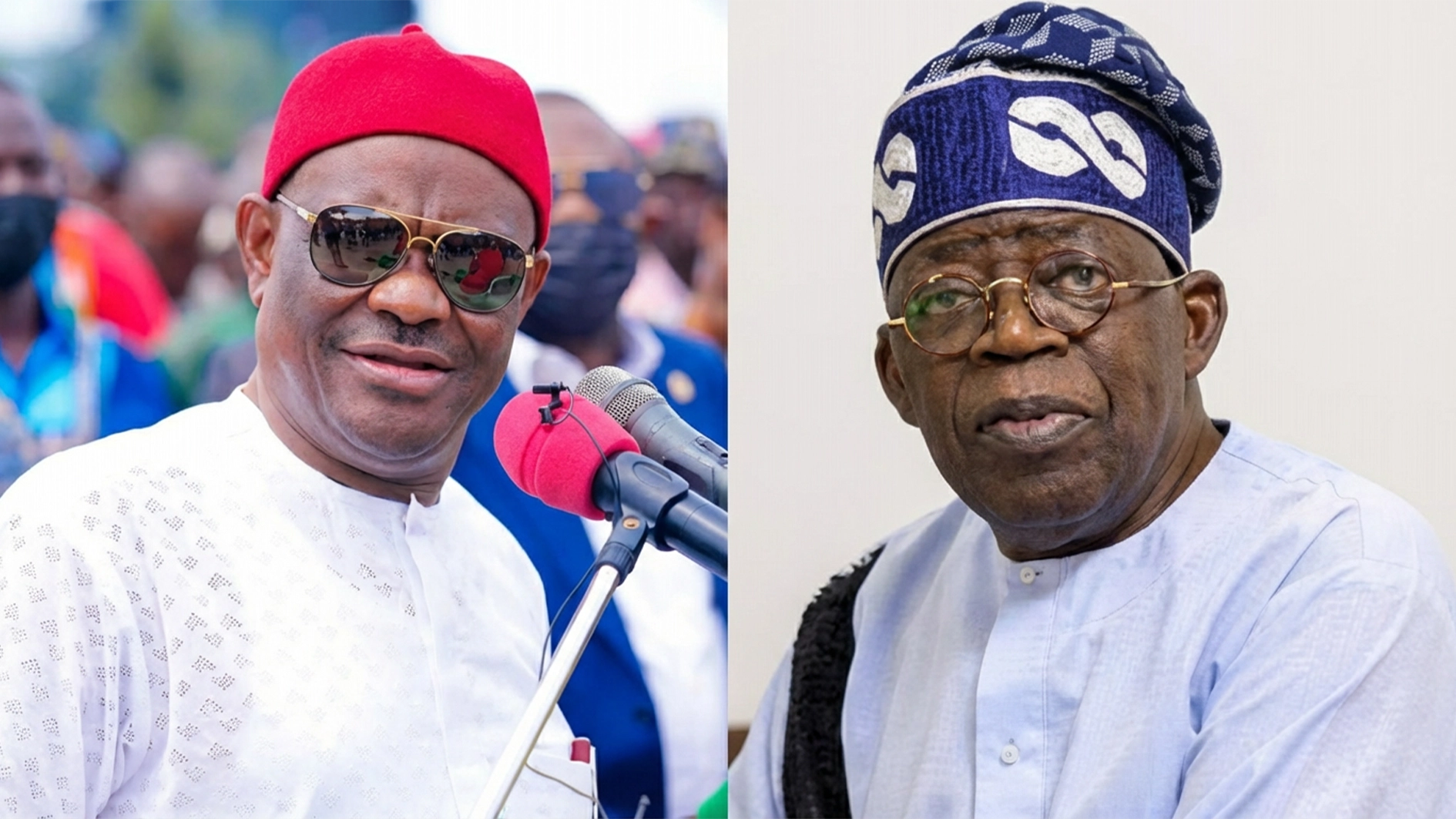
Photo: twitter/inecnigeria
As the Independent National Electoral Commission (INEC) conducts reruns and by-elections in nine states of the federation next Saturday, expectations are high that the commission will use the elections to further build confidence in the electoral process, writes SODIQ OMOLAOYE
Whatever happens during the reruns and by-elections scheduled for February 3, 2024, could be a template for what is to be expected in subsequent off-season elections and ultimately the 2027 general election.
Specifically, stakeholders believe that the forthcoming by-elections will be a litmus test for INEC ahead of the September 21 and November 16 Edo and Ondo states governorship elections respectively.
The by-elections, which arose from the death or resignation of members of the national and state legislative houses, will be held across nine states of the federation.
Two senatorial districts (Ebonyi South and Yobe East); four federal constituencies (Shanga/Ngaski/Yauri Federal Constituency of Kebbi State, Surulere I Federal Constituency of Lagos State, Akoko North East/Akoko North West Federal Constituency of Ondo State and Jalingo/Yorro/Zing Federal Constituency of Taraba State); and three state constituencies (Guma I State Constituency of Benue State, Chibok State Constituency of Borno State and Chikun State Constituency of Kaduna State) will be covered in the by-elections. In total, there are 74 candidates taking part in the elections.
Besides, the rerun elections as ordered by Election Petition Appeal Tribunals will take place in 39 constituencies translating to 2.6 per cent of the 1,491 constituencies for which elections were conducted nationwide in the 2023 general election. While the by-elections will be held in nine states in 4,294 polling units, reruns will be held in 4,596 polling units.
Currently, the Supreme Court, which has rendered final judgments on the majority of the petitions regarding the March 2023 governorship elections, has not annulled or mandated rerun elections in any state.
The Supreme Court upheld approximately 16 disputes regarding governorship elections that were under review, a development some stakeholders interpret as a validation of the Independent National Electoral Commission’s (INEC) dedication to conducting credible elections.
This outcome implies that the electoral body may avoid the distraction of organising rerun elections for the March 2023 governorship poll. It is noteworthy that court rulings mandating rerun elections mainly impacted the National Assembly and state assemblies.
Although the 2023 elections may have come and gone, its echoes keep reverberating, prompting political pundits to advise INEC to use the forthcoming by-elections and reruns to further build trust and confidence in the electoral process.
Already, the electoral commission has commenced preparations for the elections by deploying non-sensitive materials to the affected constituencies. Though there are concerns about the prevailing security situation in areas where some of the elections will be held, security agencies, headlined by the police, have reiterated their readiness to protect the voting process.
During a meeting of the Interagency Consultative Committee on Election Security (ICCES) last Tuesday, INEC Chairman, Prof. Mahmood Yakubu, raised the alarm that the commission was in possession of credible reports about the impact of the prevailing insecurity in some states on the conduct of the elections, which he said was made worse by incendiary statements from political actors. The Inspector-General of Police (IGP), Olukayode Egbetokun, however, allayed such fear, assuring that the police had conducted threat analysis in every area the election will be held and would deploy adequately.
Meanwhile, INEC Director of Voter Education and Publicity, Mary Nkem, confirmed to The Guardian that the commission was ready and set for the elections.
She recalled that the electoral umpire had met with the leadership of the political parties, where it urged political actors to get ready, adding that “we gave them all they need to prepare.”
Nkem said: “Also, as we resumed, we held a meeting with our Resident Electoral Commissioners (RECs) on Monday. I think the commission is ready. For now, we are where we want to be because all our non-sensitive materials have been deployed to the states and they have been batched according to registration areas and polling units.
“Then for the sensitive materials, of course, you know that those ones don’t come early. They come a little close to the elections. Then, the commission has been having engagements with all the relevant stakeholders.
“Just before we went for the New Year break, we had meetings with political parties where the commission urged them to be ready and gave them all they need to prepare. Also, as we resumed, we held a meeting with our RECs.
“They are the ones on ground. The meeting was for the commission to get first hand information on the level of preparation they have made; how ready they are to know if there are challenges so that those challenges can be resolved.
“We have also had meetings with the security agencies to see how the people and materials can be secured because you all know that the reruns are due to one reason or the other. So, the commission wants to forestall all of that.”
On whether there were new innovations to the electoral process that would be deployed for the by-elections and reruns, Nkem said the commission would use the same method employed in the 2023 general election and Kogi, Imo and Bayelsa off-season governorship poll.
“We are using the same process. There are no new things. The process has not changed. The commission will conduct the election using the Bimodal Voter Accreditation System (BVAS) to accredit voters and after that the BVAS will be used to send results to the IREV portal. Remember, like we always say, the BVAS is not an electronic transmission system that transmits results. What we do is we just want to upload the result so that people can see it,” she said.
On calls on INEC to see the forthcoming polls as an opportunity to redeem its image, Nkem responded: “I don’t know under which context they are saying that but all I know is that the commission has been doing its work and we will continue to do our work.
“And as we always say, election is not an affair for the commission only. We have other stakeholders – the political parties, the candidates, security, Civil Society Organisations (CSOs) and even you the media. So, you have a role to play for us to have a well secured, credible and acceptable election.”
Nkem, who admitted that the commission was handicapped in terms of arrest and prosecution of electoral offenders, assured that the forthcoming reruns and by-elections would be free and fair.
Her words: “It will interest you to know that most of the policies that were used for the 2023 elections emanated from the review of the 2019 general election. I stand here to let you know that all the reports and recommendations that have been harvested from the 2023 general election, the commission will look at them critically and implement the key ones.
“On prosecution of electoral offenders, the commission does not have the power to arrest. Election is a multi-stakeholder programme. If INEC plays its side and another stakeholder fails, there will be issues. We don’t arrest and investigate. There are organisations that do that. We only prosecute those found culpable when we receive the files. We partner with the EFCC and ICPC.
“It will interest you to know that for the 2023 general election, we received some case files of electoral offenders and they have been prosecuted and as we speak, about 19 case files were prepared for prosecution and filed for various jurisdictions of courts in Nigeria. Three have been completed and convictions secured for the three of them.”
Despite the declaration by INEC that it is prepared for the elections, a political analyst, Jide Ojo, urged the commission to learn from the 2023 general election and ensure effective crisis communications on Saturday, February 3.
According to him, there are institutional bottlenecks that affect the trust deficit Nigerians have in democratic institutions, adding that it is historical.
He said: “Don’t forget that we had about 29 years of military rule and in all of these periods there were no political parties or elections. It is just now that we are beginning to gain our feet back having successfully conducted seven general elections. The issue of trust deficit is not peculiar to Nigeria. We have examples of Brazil and the U.S., which are democracies that should be taken for global standard; yet you have these trust deficits in those democracies. So, it is about us; individuals and the managers of the process should do their best to ensure that we don’t compromise wherever we have the opportunity to play a part in the conduct of elections.”
He added that political elites that want to win by all means necessary using the Machiavellian principle of the end justifies the means should be blamed for most of the challenges in the electoral space.
“That is what is plaguing our elections. A situation where you induce whole INEC officials and where you do all sorts of things, including reaching out to the judiciary, is what is creating the cloud of doubt and trust deficit in our elections,” he added.
The analyst said what is expected of INEC is that as they plan for the forthcoming elections across some states, they should be able to ensure effective communication with the voting public, civil society and the media.
“Anywhere they encounter challenges, they should let us know early enough. They shouldn’t allow speculation and the rumour mill to gain ground before they start troubleshooting. They must ensure that they are on top of their game and have a robust citizen contact centre where people can get authentic information.
“Also, there should be no sacred cow within the commission. Where any of its staff is deemed to have gone wrong, it should ensure that they are properly handed over to the security agencies for investigation and possible prosecution. A situation where it takes weeks and months for the identity of those who have committed infractions to be revealed does not inspire confidence,” he noted.
Executive Director, International Press Council (IPC), Lanre Arogundade, in an interview with The Guardian, observed that the decisions taken so far by election tribunals revealed that political parties have a large share of the blame on the challenges facing Nigeria’s electoral process.
According to him, one way to ensure that there would be no voter apathy in the forthcoming by-elections and reruns is for citizens to hold other institutions accountable as much as they are holding INEC accountable.
Arogundade further recommended: “Political parties are supposed to do what we in the civil society are doing. They should go out there and carry out voter education. They should educate even those who will vote for them and say this is how you are going to vote.
“That’s one. Another is the law enforcement and security agencies. Quite frankly, I was an election observer in Liberia where they don’t even have the kind of infrastructure we have in Nigeria. They don’t even have enough policemen. There were some polling units where those who acted as security agents were men of the fire brigade and usually they would just have one or two. But because the culture there is not for political parties to encourage thugs to go and hijack ballot papers, it didn’t happen.
“I feel that we really don’t hold the political parties accountable enough. Every cycle of election, they go to sign the Peace Accord and before elections, you have incidents of violence traceable to some of these political parties. So, what can we do beyond those signings? Can that also be something that the police can use to hold parties accountable? I think if we really look at all these institutions, and hold them accountable, we can begin to build the kind of trust that we need in the electoral process.”
He urged INEC to use the by-elections and reruns to do a proper test run of its system, including the BVAS.
“We know that this is a smaller election but every little thing matters. So, every equipment, including the BVAS that will be used, must be tested. INEC must also ensure that they have firm agreement with those who would also make provisions like transportation.
“Normally, INEC sometimes relies on the transport unions and so on. We know in the past they turned around to hold INEC to ransom. Sometimes, when they are supposed to move, they will say they want an increase in pay. It will be good for INEC to have proper negotiations with them.”
“I know they might have entered into agreement but it would be good if they are revisited to ensure that the other parties are satisfied. This is because they could come up later with excuses like increase in fuel price.
“If these by-elections go without rancour, if the results are accepted by the candidates, if, in fact, members of the public see that the process itself is transparent, I think it can also mark the beginning of the rebuilding of trust and we will then look forward to the off-cycle governorship elections in Edo and Ondo states to further build on that process, and hopefully, we can begin to look ahead to the 2027 general election,” Arogundade added.
A former National Commissioner of INEC, Prof. Okechukwu Ibeanu, said the value or quality of ballots depends on the level of confidence or trust people have in the system and the kind of choices people associate with.
According to him, Nigerians cannot blame only INEC for the current challenges, arguing that there seems to be a growing sense of despondency among citizens worldwide when it comes to the capacity of democracy to deliver.
Ahead of next Saturday’s polls and the need for INEC to rebuild citizens’ confidence in the process, the professor questioned the assumption that introducing technology into the electoral system would increase people’s confidence in the process.
“The attempt to depersonalise the trust question by recourse to technology may not work. The reason for me is very simple. There has to be a prior trust in the system that develops and governs technology before people can trust the technology. Therefore, the assumption that it is possible to rebuild trust only with the introduction of technology may actually be an illusion,” he stated.






